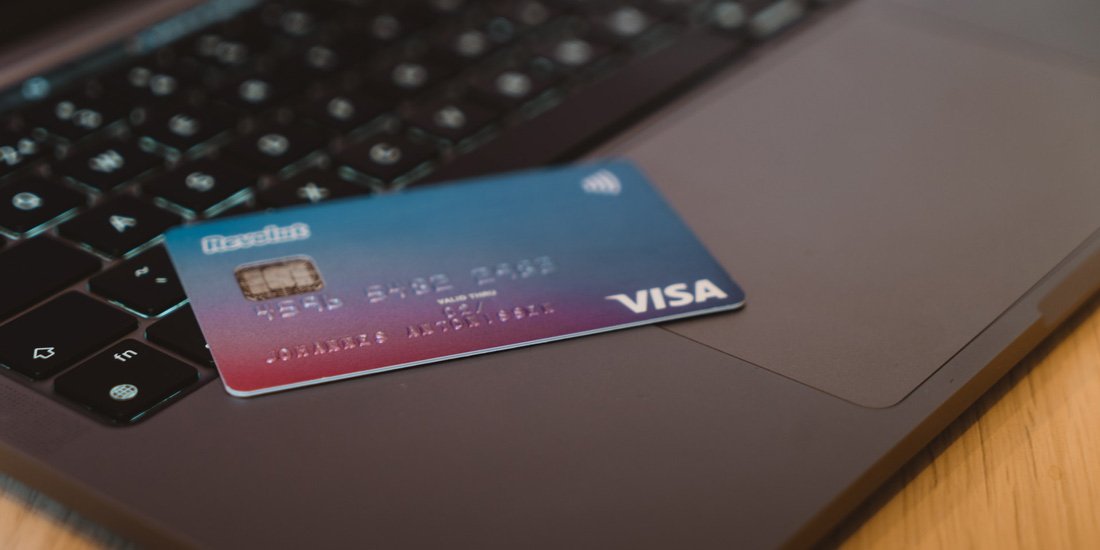
What Credit Score Do You Start With?
6 Min Read
Your credit score starts with your first loan product, be it a student loan or your first credit card. It is likely to be around 500-700, if you pay the loan on time. However, the starting credit score of most popular credit-scoring models in the U.S is typically 300 and it is associated with very poor management of credit.
In this article, we’ll look at a credit score and why it’s crucial for your financial health. We’ll also discuss what factors contribute to the score calculations and where you should start if you’re trying to improve yours.
- What Is the Usual Starting Credit Score?
- At What Age Does Your Credit Score Start?
- How Are Credit Scores Calculated?
- What Is the Perfect Credit Score?
- How Often Does Your Credit Score Change?
- How Long Does It Take to Get a 700 Credit Score?
- Can You Have a Credit Score Without a Credit Card?
- How to Check Your Credit Score?
- How to Improve Your Credit Score?
- Your Starting Credit Score Doesn’t Last All Your Life
What Is the Usual Starting Credit Score?
Many factors affect your credit score. The most important thing to know is that your chosen lender will determine your starting credit score. If you apply for a loan from one of the big banks, like Chase or Bank of America and pay the loan on time, your starting score will be 500-700. Learn how much you can borrow with a 700 credit score.
At What Age Does Your Credit Score Start?
When you’re 18 years old, your first credit score starts getting tracked. It is the age at which you can get your first credit card or loan, and the three major credit reporting agencies (Equifax, Experian, and TransUnion) begin to track your credit history. Read about how to get a loan at 18.
How Are Credit Scores Calculated?
Credit scores are calculated based on your financial habits and history. The score is a numerical representation of your financial health, and lenders use it to decide whether or not you’ll be granted a loan.
The three major credit bureaus use different formulas to calculate credit scores. However, they all rely on the same information to determine your score. Here are some of the factors that can affect your credit score:
Payment history: Your payment history is the most critical factor in determining your creditworthiness. If you’ve made on-time payments for an extended period, your score will be higher than if you’ve had late payments or credit accounts sent to collections. Learn more about whether you can have a 700 credit score with collections.
The amount owed: The amount owed on each account makes up 30% of your total score, so keeping track of how much money you owe is essential. If one of your accounts has too much debt compared to its available balance, this will harm your FICO credit score.
Length of credit history: Length of credit history accounts for 15% of your total score. It shows lenders how long you’ve been on credit reports.
Credit mix: All your credit accounts play a crucial role in calculating your credit score. It accounts for 10% of your total score and could improve if you have a diverse credit mix, for example, both revolving debt (like credit cards) and installment debt (like medium or long-term loans) in your credit history.
New credit: The last but not the least factor of your credit score is based on how often you apply for a new loan. Try to create a gap of three to six months between loan applications to avoid lowering your credit score with too many new loan requests.
What Is the Perfect Credit Score?
The good credit score ranges between 740 and 799, but the exceptional one is between 800 and 850. If you have one of these scores, you’ll qualify for the best interest rates and terms on loans, mortgages, and other types of loans. However, if your score is below these numbers, it can make it harder to get approved for the loans you want.

How Often Does Your Credit Score Change?
The answer is that it varies between different types of lenders. Because multiple bureaus are involved, your credit score can increase or decrease over time without any changes in your finances or loans. For example, if one bureau sees that you opened up a new account and another doesn’t know about it, one could have an outdated view of your finances while another considers what happened recently.
How Long Does It Take to Get a 700 Credit Score?
There’s no one-size-fits-all answer for how much time it takes to build your credit score. However, some general guidelines say that you can get it in less than a year.
For example, if you want to know how long it will take for your credit score to reach 700, try your credit card issuer to see what your score is now, what factors are driving it down, and where your progress stands on available credit. Also, you can use credit-builder loans that help you improve your FICO score if you repay them on time.
Can You Have a Credit Score Without a Credit Card?
Yes, you can establish credit and have a credit score without a credit card. Credit card companies are not the only ones that report your payment and usage history to the three credit bureaus that report on your credit score.
You can use credit card alternatives provided by certain loan agencies. Or you may have personal loans that could also improve your credit score if paid responsibly.
How to Check Your Credit Score?
You can go to one of the big three credit bureaus (Equifax, Experian, and TransUnion) and get a free copy of your credit report. We recommend you to go to your credit card provider and request the credit file. Plus, you can rely on a nonprofit credit counselor.
The free way to check your credit score is by using AnnualCreditReport.com, which allows consumers access to all three credit reports once per year without charge as mandated by federal law.
If you need more than one check per year, you may also choose a paid service that will give you a full copy of your credit report from all three bureaus.
How to Improve Your Credit Score?
You can take a few simple steps to ensure that your credit score is as high as possible. It’s all about taking responsibility for your finances and ensuring that what you’re doing is helping (or at least not hurting) your poor credit score.
As credit cards are one of the most used borrowing options in the US, here are the best ways to improve your credit score using your credit cards:
- Pay off debt.
- Don’t apply for new credit cards unless it’s necessary.
- Don’t close old accounts with negative balances.
- Decrease your credit utilization ratio (available credit divided by revolving credit limits).
- For the best score, try not to use over 30% of your total credit limit.
Your Starting Credit Score Doesn’t Last All Your Life
If you have a poor credit history, don’t be discouraged! If you have a poor credit history, don’t be discouraged! It doesn’t matter what credit score you start with. There are lenders who provide loans for credit scores under 550. Moreover, as you get older and more experienced, you’ll likely see an increase in your credit score. You can also improve your score by paying off any outstanding debts, staying on top of your bills, and keeping track of any changes to your information (like addresses or phone numbers).
Remember that having excellent credit isn’t just about getting new loans easily. It’s about being able to secure affordable insurance rates and even get approved for specific jobs! So try to stay on top of your finances and decrease your credit utilization figure as much as possible to maintain a good credit score throughout your life.
Need Cash Fast To Cover Your Unexpected Expenses? Apply For A Loan Now!Apply


